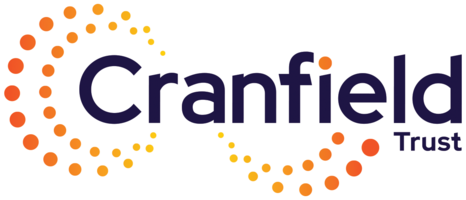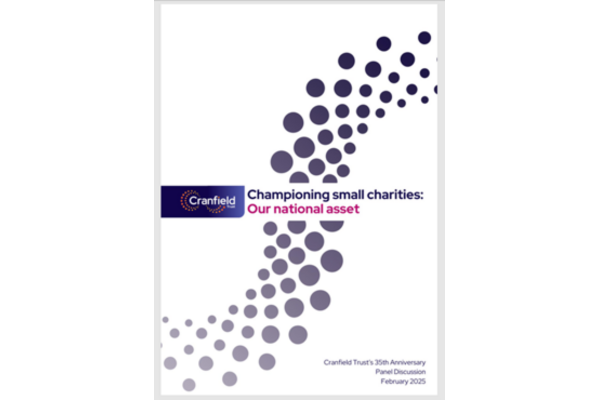Cranfield Trust is calling on funders, policymakers, and charity leaders to take action to protect and sustain the vital services delivered by small charities. In its new report, ‘Championing small charities: Our national asset’, the Trust highlights that despite their vital role and the valuable services they provide in communities across the UK, many small charities are struggling due to rising demand, financial pressures, and insecure funding.
Based on insights from the Trust’s 35th-anniversary panel discussion, which brought together views and insight from Dame Julia Cleverdon DCVO CBE, Caroline Taylor, Malcolm John and Elizabeth Long, and from other charity leaders, funders, and key stakeholders, Cranfield Trust is calling on funders and government to review funding models, and for greater collaboration between small charities to build resilience and sustainability.
Among its key recommendations, Cranfield Trust supports movements like IVAR’s ‘Open and Trusting Grantmaking’ in urging funders to move away from short-term, restrictive grants and provide multi-year, flexible funding, allowing charities to plan for the future rather than operate in survival mode. It is also calling for applications and reporting to be more proportionate – calling overall to reduce the bureaucracy and burden on frontline organisations.
The report highlights the need for investment in leadership and management ensuring charity managers have the skills and support to strengthen governance, strategic planning, and operational resilience. Additionally, it stresses the importance of strengthening governance through diverse and strategically recruited boards and calls on policymakers to simplify funding applications and reporting requirements.
The Trust is encouraging smarter collaboration between charities, focussing more on services rather than organisations, ultimately helping beneficiaries navigate to much needed support more easily. It’s also highlighting wellbeing of staff and volunteers as essential in organisations under pressure and should be a key consideration for charities at this time.
Crucially, in line with the Voluntary Sector Covenant, the report urges the government to recognise small charities as a key partner and national asset and to use their knowledge more strategically. Small charities need urgent investment through multi-year commitments, as, without meaningful change, many organisations may struggle to survive, leaving vulnerable communities without essential support.
Key recommendations from the report:
Investing in leadership and capacity-building
Small charities need targeted support to strengthen their financial management, governance, and strategic planning. Securing long-term, flexible funding
Short-term, restricted grants put a strain on charities, making long-term planning difficult. The report calls on funders to provide multi-year, unrestricted funding so charities can have security and focus on delivering vital services. Funders and policymakers are also urged to streamline funding applications, simplify reporting requirements, and create a more supportive environment for charities.
Encouraging smarter collaboration
Small charities can increase their impact by working together rather than competing for resources. When resources are scarce, finding ways to work together, focusing on services rather than individual organisations, can help to maximise resources and expertise. Strengthening governance through diversity and strategic recruitment
Strong, diverse boards are essential for the long-term success of small charities. The report recommends conducting skills and diversity audits to improve board effectiveness and ensure leadership teams reflect the communities they serve.
Government support
The Civil Society Covenant sets a positive tone for the relationship between government and the sector, but recent changes, in particular the lack of exemption for charities from the rise in National Insurance Contribution rates, are not aligned with the document. The report calls on the government to recognise small charities as a national asset requiring urgent investment.
Amanda Tincknell, Chief Executive of Cranfield Trust, stressed the importance of vital action needed to secure the future of small charities:
“The operating climate for small charities is now having a substantial effect on small organisations and their services. In our work with hundreds of frontline charities every year, we are seeing organisations struggle to meet demand, Chief Executives spending their time on fundraising and reporting, and reserves dwindling. Small charities play a crucial role in supporting the most vulnerable in society, yet they are under increasing strain. Without bold action from funders, policymakers, and the sector itself, many may not survive.”
“Our report provides practical recommendations to help charities build resilience, develop strong leadership, and sustainable funding models. By harnessing the insights from our expert speakers on our panel and sharing our recommendations in this report, we aim to drive meaningful change and secure the future of small charities, ensuring they continue to support those who need them most.”








